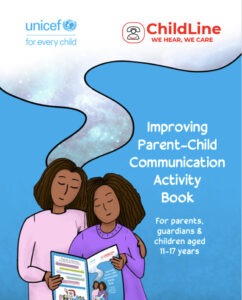[et_pb_section fb_built=”1″ _builder_version=”4.5.7″ da_disable_devices=”off|off|off” da_is_popup=”off” da_exit_intent=”off” da_has_close=”on” da_alt_close=”off” da_dark_close=”off” da_not_modal=”on” da_is_singular=”off” da_with_loader=”off” da_has_shadow=”on”][et_pb_row _builder_version=”4.5.7″ _module_preset=”default”][et_pb_column type=”4_4″ _builder_version=”4.5.7″ _module_preset=”default”][et_pb_post_title _builder_version=”4.5.7″ _module_preset=”default” title_level=”h2″][/et_pb_post_title][/et_pb_column][/et_pb_row][et_pb_row _builder_version=”4.5.7″ custom_margin=”-36px|auto||auto||”][et_pb_column type=”4_4″ _builder_version=”4.4.6″][et_pb_text _builder_version=”4.9.1″]
Why do children have imaginary friends?
It’s common for children around 7 years old or younger to have an imaginary friend. This friend can be anything from an invisible companion that they chat or spend time with, to a fantasy creature they created, or even their favourite stuffed toy that they’ve given a personality to. For a child, this companion can provide friendship free of judgement, support through loneliness and/or emotional distress, or just an expression of their creativity. Some more benefits of imaginary friends for children are:
- They’re comforting in scary or stressful situations, especially if a child is anxious in social situations.
- Creating and maintaining the imaginary persona of a unique individual with his/her own personality helps children to practice abstract thinking and nurture their creativity.
- Having someone that’s always by their side when things are difficult can do wonders for their confidence. This also means they have a companion that understands them and may help them process big emotions.
- Imaginary friends can give children a sense of control in a world where they otherwise have none.
How long does it last?
Many parents worry that their child’s imaginary friend is an unhealthy coping mechanism, ungrounded in reality, that will affect them negatively for the rest of their life. However, most children are or will be aware that their imaginary friend is not real. Most children grow out of this part of their childhood well before puberty sets in, but it isn’t necessarily a red flag if this phase lasts a couple more years beyond that.
Is it normal or healthy?
Having an imaginary friend is generally a completely healthy aspect of the childhood experience. It generally does not indicate a deeper issue or a possible mental illness. It is usually the simple and harmless freedom of a child’s mind and imagination.
On the other hand, if the child gradually becomes more and more withdrawn, often choosing to spend time with their imaginary friend instead of friends or family, there may be some cause for concern. This is especially concerning if the imaginary friend is scary or intimidating to the child in some way or encourages the child to engage in dangerous behaviour.
If you notice these signs in your child, you can try talking them through it. Ask them why they’re afraid of their friend or why they think their friend would want them to do these things. If addressing the behaviour yourself doesn’t work, it’s okay to seek help from a professional at this point. There may be issues or feelings your child needs to process that they may not feel comfortable disclosing to you just yet.
Remember that you can call us at 800-4321 or 131 or visit childlinett.org/booking to make an appointment for counselling if you experience any of the above and would like professional support. All services are completely free!
[/et_pb_text][/et_pb_column][/et_pb_row][/et_pb_section]








